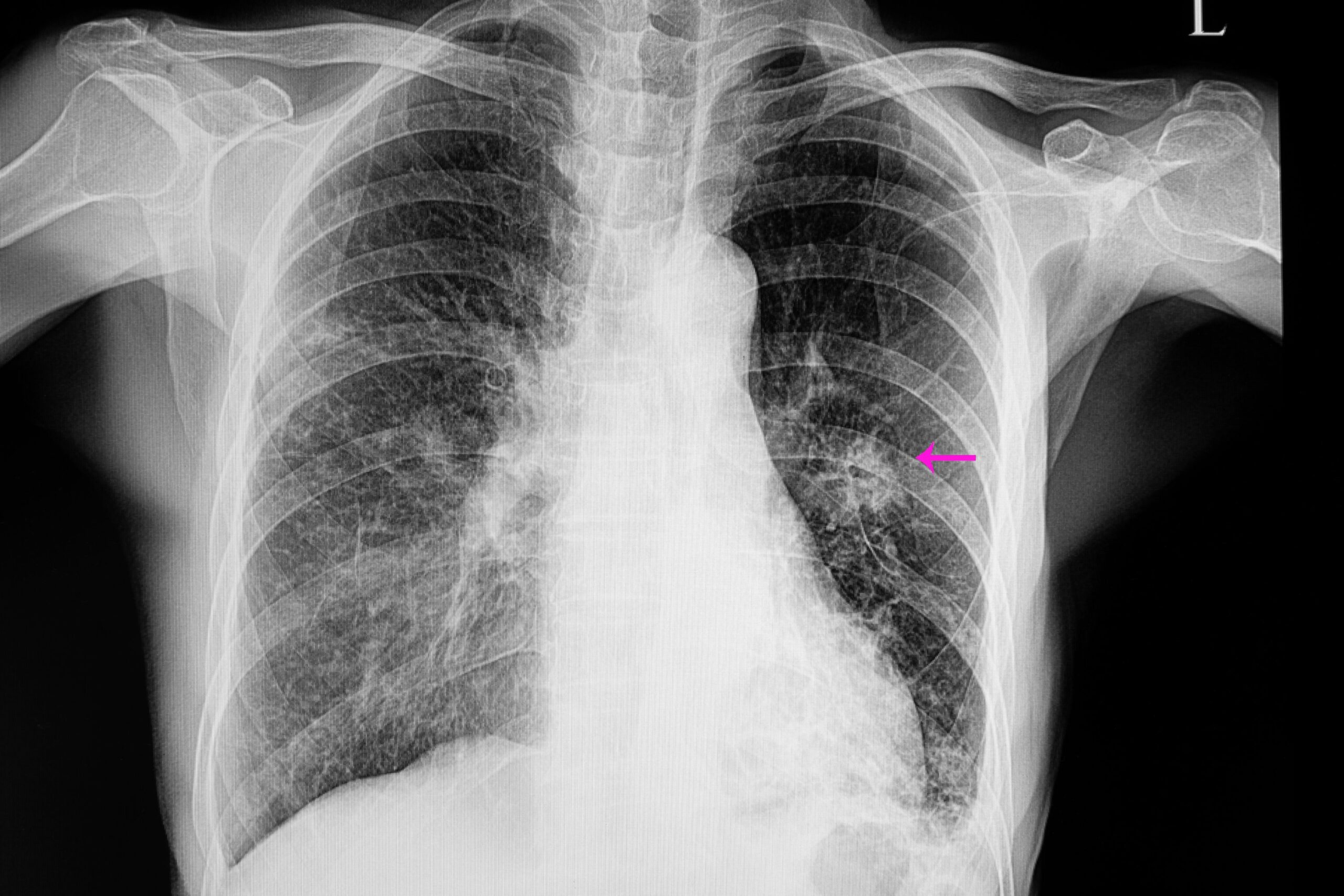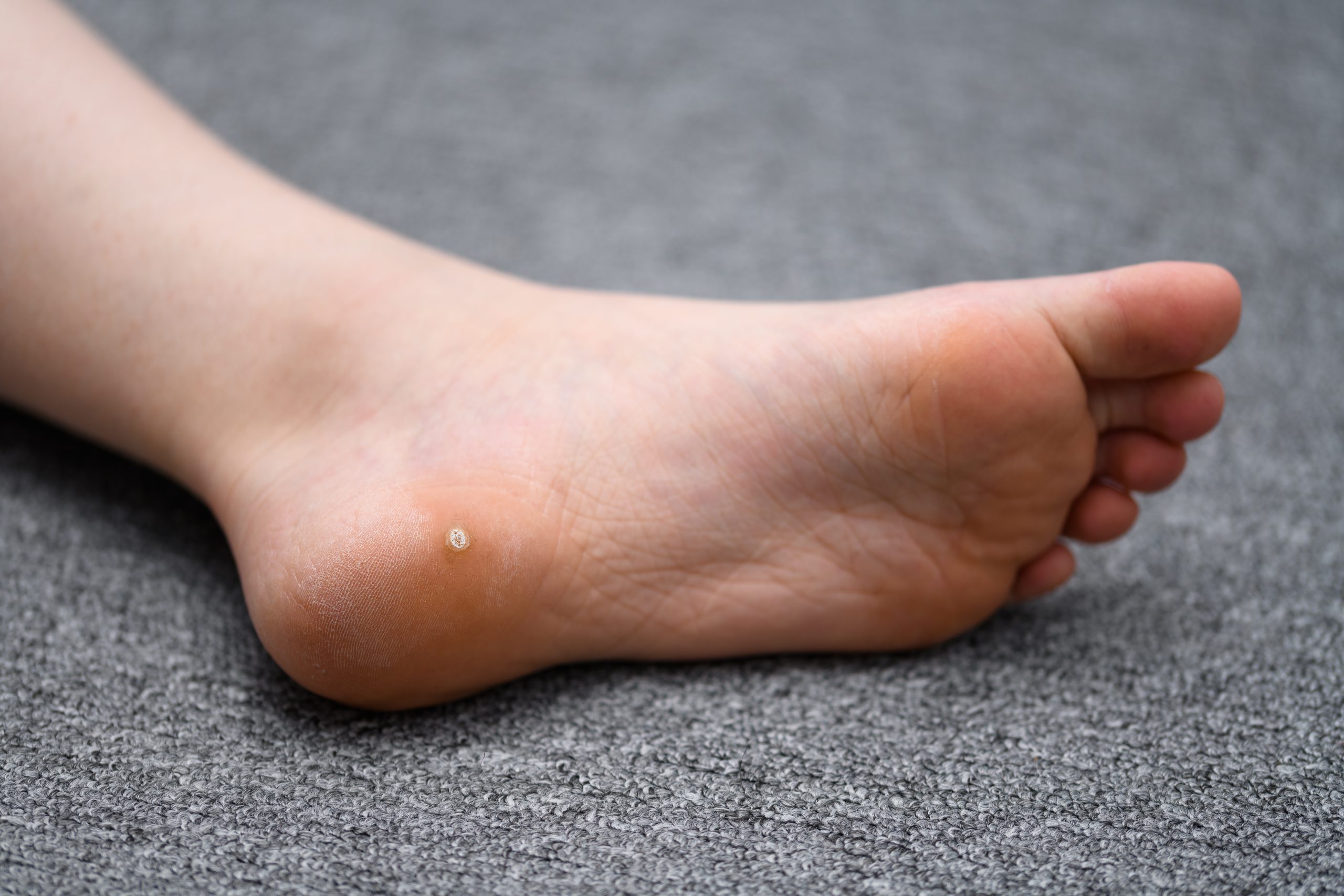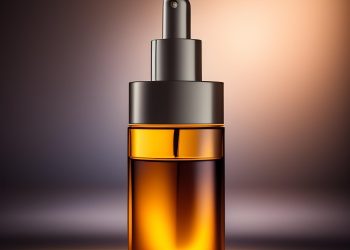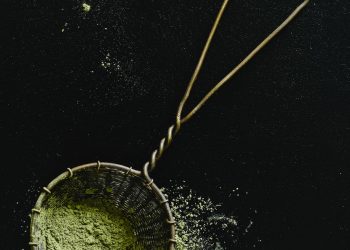In 2015, over 920,000 children died of pneumonia [1].
A leading cause of death among children ages five and below, pneumonia is defined as a “lower respiratory lung infection that causes inflammation in one or both lungs” [2].
When you have this condition, the air sacs that can be found in your lungs become filled with pus or fluid [2].
The result is a feeling of illness along with symptoms that are similar to those you get when you have flu [2].
This can last for weeks, and usually doesn’t go away on its own.
The American Lung Health Association explains that this infection is caused by bacteria, viruses, mycoplasmas, fungi, and chemicals.
Although prevalent in children, pneumonia can affect any age and should be given immediate treatment.
Here we have a list of quick-acting home remedies for pneumonia.
1. Oregano Oil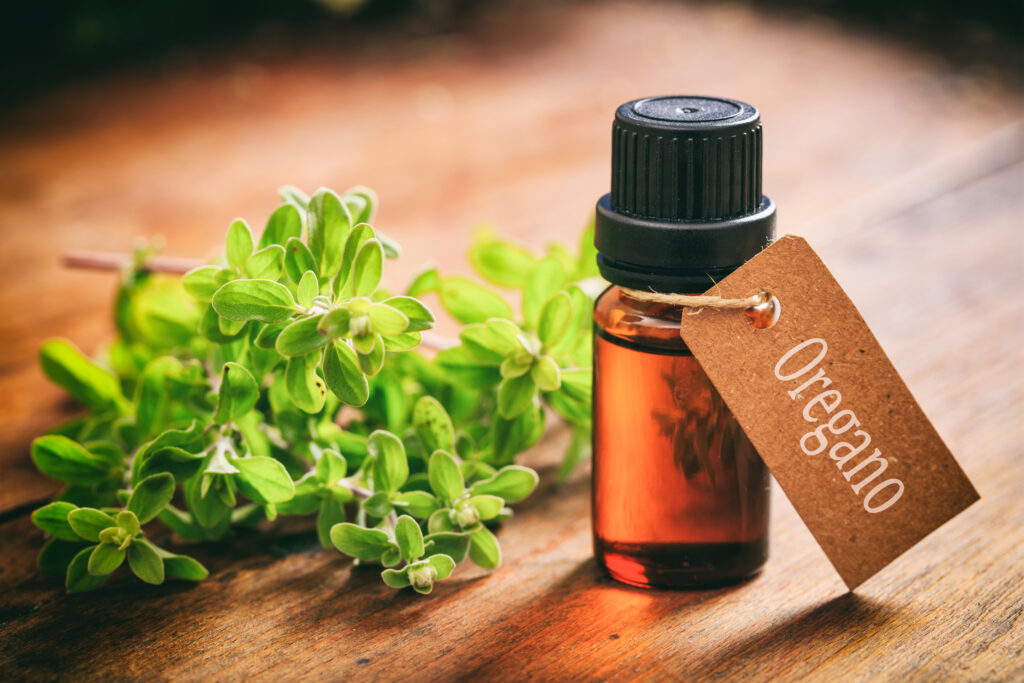
The healing properties of oregano have long been established in scientific literature.
It’s most popular as a remedy for many types of respiratory ailments, including asthma, bronchitis, common cold and so on.
One of the best ways to control pneumonia is also with oregano oil.
A 2007 study verified oregano oil’s antibacterial effects, showing its inhibitory action against Klebsiella pneumoniae, a type of bacteria known to cause pneumonia [3].
The active compounds in oregano oil, namely thymol and carvacrol, are responsible for its potent antibacterial properties.
These work by inhibiting the activities of the bacteria, and preventing them from growing and spreading in the respiratory tract.
Oregano oil further provides relief by helping clear nasal congestion and reducing mucus.
What You’ll Need:
- 2 to 3 drops of oregano oil
- 1 glass of water
Recommended Directions:
- Add oregano oil to your drinking water.
- Drink this concoction three times a day.
2. Eucalyptus Oil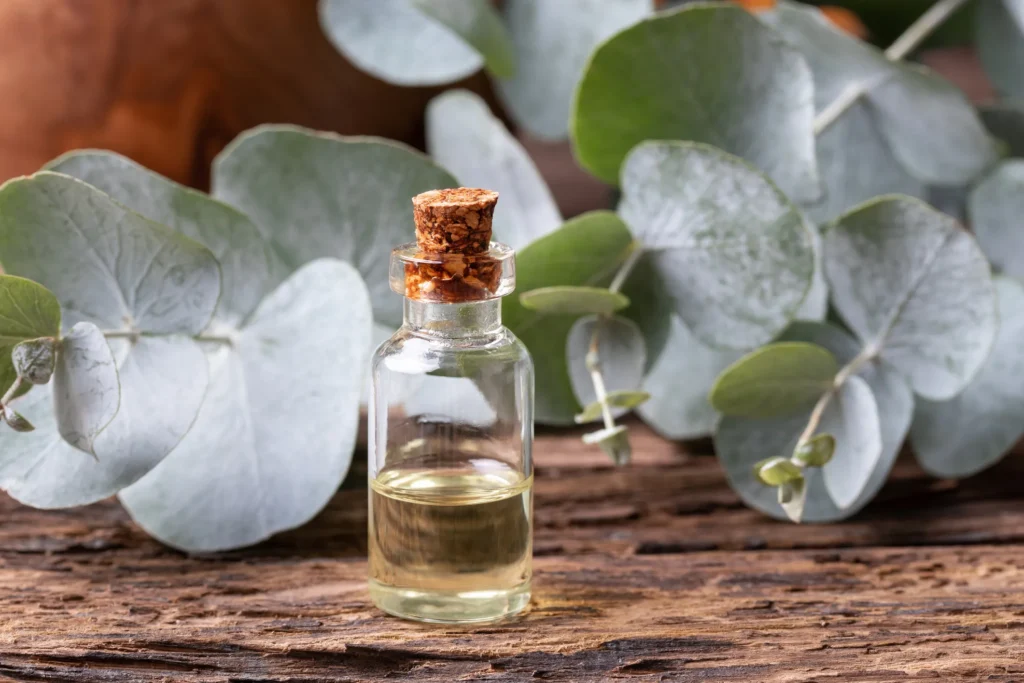
Eucalyptus oil comes from an evergreen tree that originates in Australia.
In addition to its soothing minty aroma, eucalyptus oil has become a preferred ingredient in various pharmaceutical products.
That’s because it has been found to possess excellent antibacterial, analgesic and anti-inflammatory properties.
For many years, eucalyptus has been used to treat respiratory conditions including asthma, bronchitis, colds, cough, and sore throat [4].
Several studies confirmed that it has potent antiviral and antibacterial properties that make it an efficient remedy for pneumonia [4, 5, 6].
In one experiment published in the Agricultural Journal, it was found that Eucalyptus extract is highly active against many strains of bacteria, one of which causes pneumonia [7].
Contributing to the ability of eucalyptus to combat bacteria are its phytochemicals such as flavonoids, tannins, saponins, and terpenoids [7].
Its broad spectrum antimicrobial properties also cover E. coli, S. aureus, S. epidermidis, B. Cereus, and P. aeruginosa, among many others [7].
What You’ll Need:
- 3 drops of eucalyptus essential oil
- Hot water
Recommended Directions:
- Put hot water in a basin.
- Add eucalyptus oil to the water.
- Inhale the steam for five to 10 minutes.
- Do this three times a day.
3. Garlic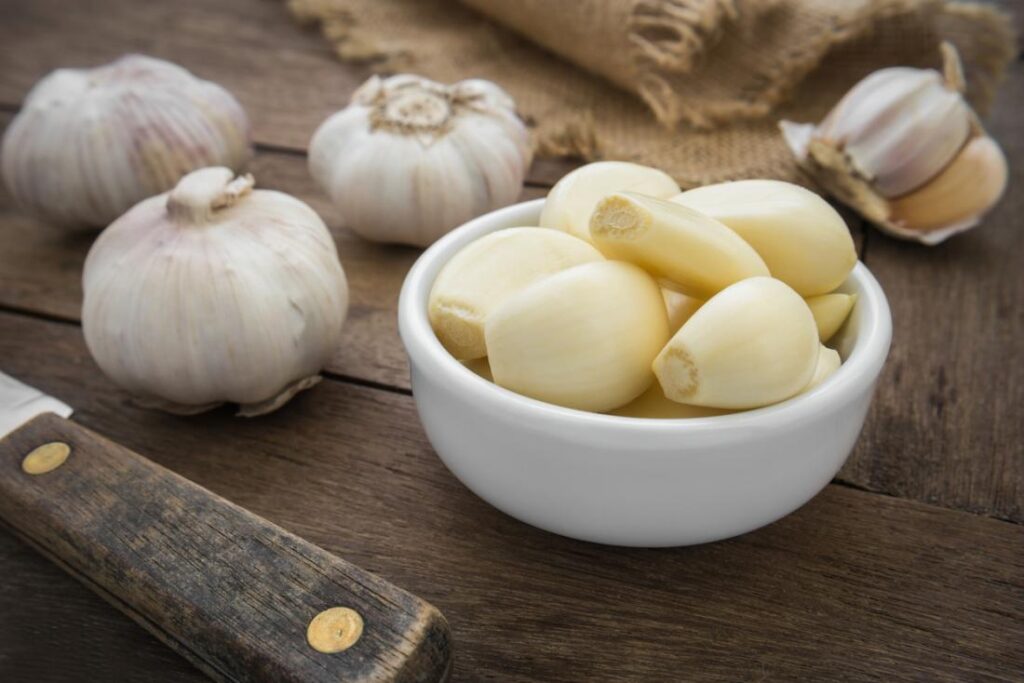
It was five thousand years ago when garlic was first used for medicinal purposes.
Since then, it has become the subject of numerous scientific studies and explorations.
Most of these have yielded positive findings, confirming the vast array of beneficial effects of garlic on one’s health.
One of its most widely known uses is as a natural antibacterial agent.
Research published in the Ethiopian Medical Journal in 2002 revealed that garlic can be used as “an effective antibacterial agent” to fight off Streptococcus pneumoniae [8].
Another study published in 2003 found that the sulfur compounds in garlic exhibited inhibitory actions against Klebsiella pneumoniae and many other types of bacteria [9].
Apart from its antibacterial effects, garlic also helps clear out phlegm in the lungs and boost the immune system.
What You’ll Need:
- 1 or 2 cloves of garlic
- 1 teaspoon of lemon juice
- 1 teaspoon of honey
Recommended Directions:
- Crush garlic to extract its juice.
- Mix garlic juice with lemon juice and honey.
- Drink the concoction three times a day for one to two weeks.
4. Astragalus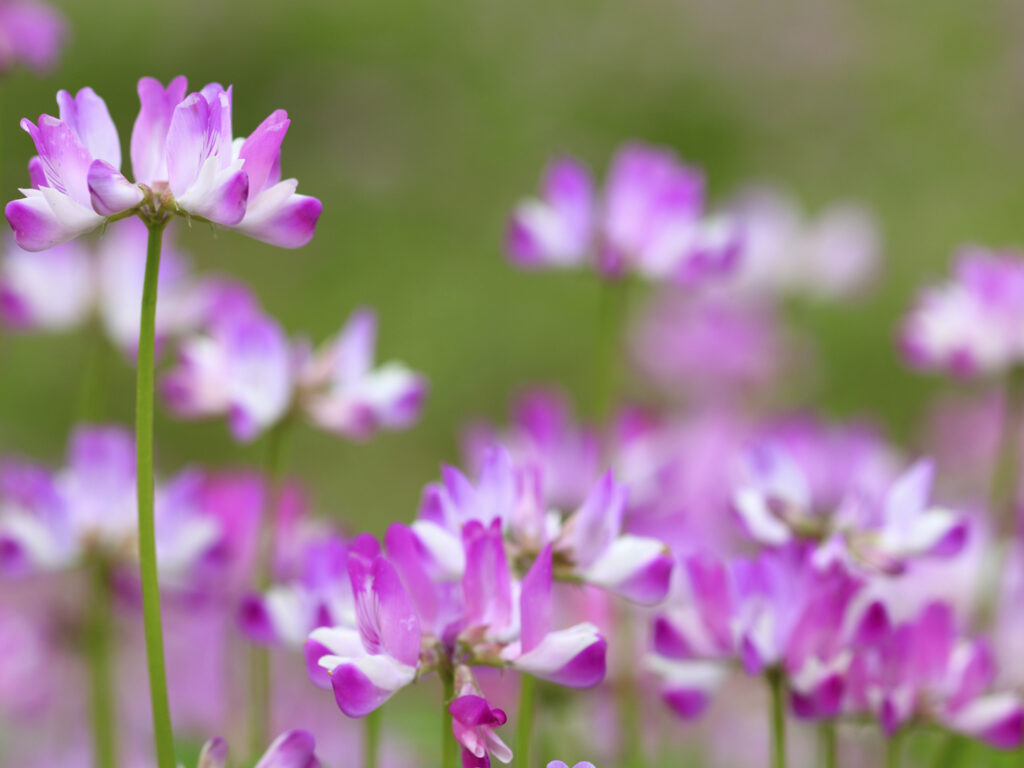
The health benefits of astragalus are amazing.
According to the University of Maryland Medical Center, astragalus has been used in ancient Chinese medicine to strengthen and protect the body against disease.
The root of this plant is in fact, one of the most powerful immune-boosting remedies in the world.
This perennial plant which can originally be found in the eastern and northern parts of China is a boon for those suffering from respiratory ailments.
In a study published in the Journal of Tropical Medicine, it was reported that astragalus in combination with ginseng proved to be a potent treatment for pneumonia [10].
Its curative effects were confirmed after it was tested along with other herbs in treating pneumonia-induced mice subjects [10].
Its active component Ligusticum acts as an anti-inflammatory agent and at the same time, enhances the body’s immune resistance [11].
Moreover, it works to make the lungs stronger, and alleviate difficulty in breathing [11].
What You’ll Need:
- 1 tablespoon of dried astragalus root, shredded
- 2 cups of water
Recommended Directions:
- In a pot with water, simmer dried astragalus shreds for 10 minutes.
- Strain and drink the tea.
- Drink this tea several times a day.
5. Cayenne Pepper
Not everyone loves cayenne pepper.
For some people, it’s way too spicy.
Now for those who can’t get enough of its strong flavor and pungent aroma, they’re in for a treat.
This spice is actually loaded with an array of benefits for the health that many people are not aware of.
Cayenne pepper aids in digestion, relieves headache, detoxifies the body, alleviates nerve and joint pains, aids in weight loss, and speeds up the metabolism.
Apart from all these, cayenne pepper’s anti-inflammatory and anti-microbial properties have also been verified a number of times [12].
These powerful medicinal properties have made it a staple in Homeopathy and Ayurveda [12].
Apart from killing the cause of pneumonia, cayenne pepper also expels mucus in the respiratory passages to provide immediate relief.
When you make use of this remedy, you’ll immediately feel your chest and lungs less congested.
What You’ll Need:
- 1 glass of freshly squeezed lemon juice
- 1/2 teaspoon of cayenne pepper powder
Recommended Directions:
- Dissolve cayenne pepper in the lemon juice.
- Drink this solution two to three times a day for one week.
6. Echinacea
A traditional herbal medicine native to North America, Echinacea has long been used to treat respiratory ailments, as reported by WebMD.
In 2008, Canadian scientists examined the effects of Echinacea extract on 15 pathogenic bacteria and two fungal strains [13].
With its high concentration of polysaccharides, alkylamides and caffeic acid, Echinacea was highly effective in deactivating Haemophilus influenzae, Streptococcus pyogenes, Legionella pneumophila, Propionibacterium acne, and Clostridium difficile [13].
The findings of this study, which were published in the Pharmaceutical Biology Journal, provided sufficient evidence that this herbal remedy can protect against respiratory infections including pneumonia [13].
It’s also a great way of alleviating the symptoms caused by this respiratory infection [13].
As if these aren’t enough, Echinacea has also been shown to have immunity boosting effects on the body and can shorten the duration of respiratory infections [14].
What You’ll Need:
- 1 teaspoon of Echinacea
- 1/4 teaspoon of lemon grass
- 1/4 teaspoon of spearmint
- 1 teaspoon of honey
- 2 to 3 cups of water
Recommended Directions:
- Boil water in a pot.
- Add all ingredients except honey.
- Reduce heat and simmer for 10 minutes.
- Mix in honey before drinking the tea.
- Take this herbal tea once a day, two to three times a week.
7. Fenugreek Seeds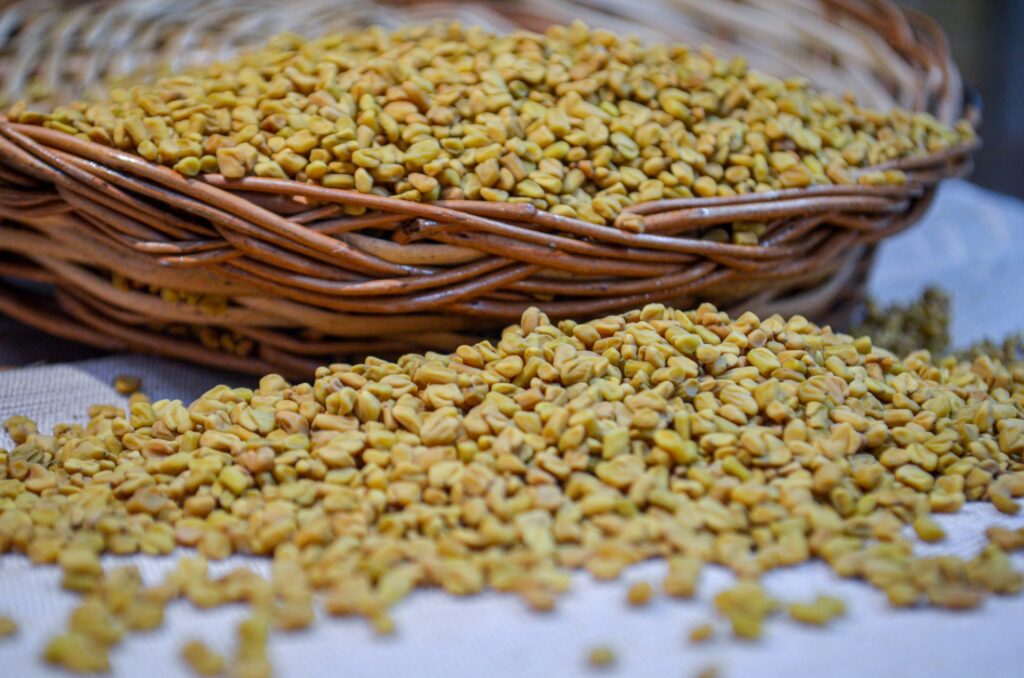
An annual herb that can be found in India, Morocco and Egypt, fenugreek seeds are used by traditional herbalists to cure a wide array of diseases [15].
Fenugreek seeds can efficiently provide relief from fever, dandruff, stomach ailments, sore throat, mouth ulcer, anemia, insomnia and diabetes.
As a “mucus solvent and throat cleanser”, fenugreek seeds are a useful treatment for pneumonia and other respiratory infections [15].
This herbal remedy has also been found to have strong antibacterial effects, inhibiting the infection caused by Klebsiella pneumoniae, among other types of bacteria [16].
The seeds’ antimicrobial activities have been confirmed in a 2010 study conducted by researchers from Lebanon [16].
What You’ll Need:
- 1 teaspoon of fenugreek seeds
- 1 teaspoon of ginger
- 1 clove of garlic, crushed
- 1/4 teaspoon of cayenne pepper
- Juice from 1/2 lemon
- 2 cups of water
Recommended Directions:
- Boil water in a pot.
- Add all ingredients except lemon juice.
- Let it steep for 10 minutes.
- Strain and add the lemon juice.
- Drink the tea several times during the day.
8. Mullein Flower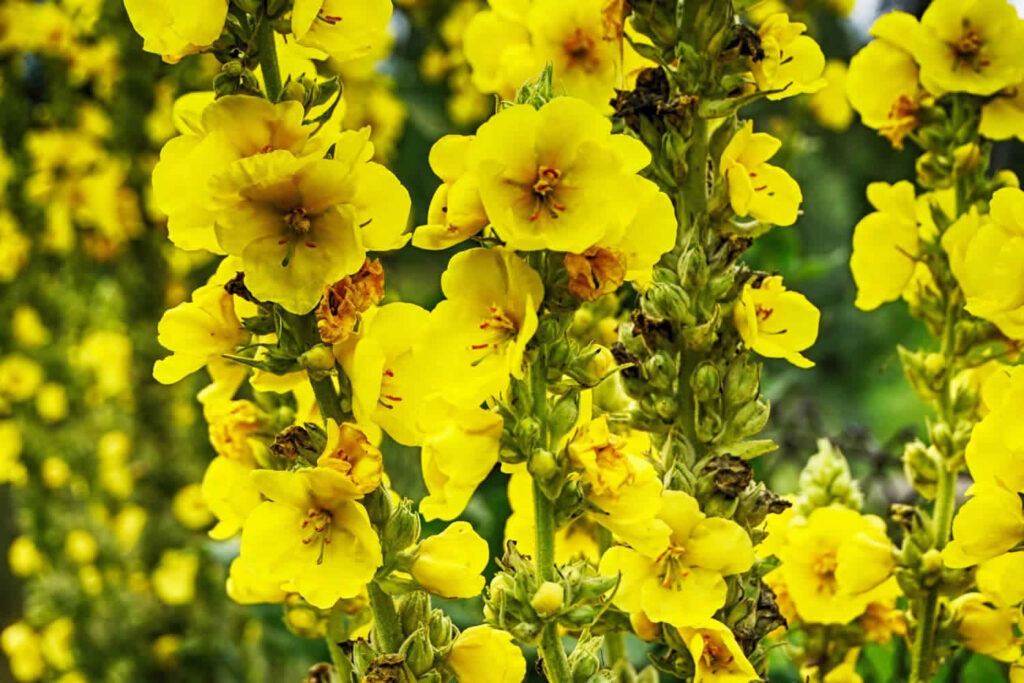
It’s not often that you’ll find mullein flower in lists of home remedies.
When you do, you can be sure that it will effectively combat whatever disease it is used for.
This medicinal plant is most commonly used for treating pulmonary diseases [17].
The essential oil extracted from its flower has been found to have antimicrobial activities for some types of bacteria [18].
Using disk diffusion method, researchers were able to identify the inhibitory effects of this flower against Staphylococcus aureus, Bacillus subtilis, Pseudomonas aeruginosa, Salmonella typhi, and Aspergilus niger [18].
In a study that can be found in the Journal of Ethnopharmacology, it was reported that mullein can work against Klebsiella pneumoniae [19].
The compounds in mullein flower turn out to be highly toxic for the cells of this bacterium, thereby preventing it from growing, forming and spreading.
What You’ll Need:
- 1 cup of water
- 2 teaspoons of mullein leaves and flowers
Recommended Directions:
- Boil water in a pot.
- Add mullein leaves and flowers.
- Reduce heat.
- Simmer for five to 10 minutes.
- Strain tea and inhale steam or drink tea once a day.
9. Turmeric
Highly praised for its countless benefits for the health, turmeric is used for its ability to tone down inflammation, relieve pain, and ward off many types of ailments.
It won’t be hailed as the queen of spice for nothing.
It’s also well-known for its bacteria-fighting properties.
A university in Thailand conducted a study on turmeric’s antimicrobial activity.
Researchers have found that turmeric is a useful remedy for infections caused by Klebsiella pneumoniae and other bacteria [20].
Even at low concentration, turmeric is highly active against these bacterial strains [20].
This mechanism can be attributed to the presence of curcumin in turmeric.
Another study demonstrated the inhibitory effects of turmeric on pathogens that trigger pneumonia [21].
It even has quick-acting results, which can control bacteria in a few hours after exposure.
What You’ll Need:
- 1 teaspoon of turmeric powder
- 1 glass of warm milk
Recommended Directions:
- Add turmeric powder to your milk.
- Stir to dissolve.
- Drink two to three times a day.
10. Indian Gooseberry
Indian gooseberry is an edible fruit that comes from a tree that belongs to the Phyllanthaceae family.
In Ayurvedic medicine, this fruit is considered a “miraculous food” probably because it provides a multitude of remarkable benefits for the health.
An excellent source of vitamin C and other phytonutrients, Indian Gooseberry is helpful in combating pneumonia.
In 2006, Indian researchers found that long-term consumption of Indian gooseberry can inhibit infection caused by Klebsiella pneumoniae [22].
Not only does this fruit boost the body’s immune defense, it also protects against “bacterial colonization of the lungs” [22].
What You’ll Need:
- 3 pieces of Indian gooseberry, chopped
- 2 cups of water
- 2 tablespoons of raw honey
Recommended Directions:
- Blend water and Indian gooseberry.
- Add honey.
- Drink this juice twice a day for one month.
11. Tea Tree Oil
Another recommended remedy for pneumonia is tea tree oil.
For more than 100 years, it has been used in Australia to cure a wide range of health problems.
Promoters of this oil use it primarily for its antiseptic and antimicrobial actions.
In scientific research, this oil has been proven to be anti-inflammatory and antiseptic and has been shown to effectively combat pneumonia-causing bacteria called Streptococcus pneumoniae [23].
It’s a quick and efficient way to combat the bacteria causing the infection, and at the same time, alleviate the symptoms, which include difficulty in breathing, chest congestion, and many others.
As with any essential oils, tea tree oil also can’t be used in its pure form.
Although this oil is safe for topical use, it must be diluted first in carrier oil or water so as not to cause irritation.
Same is true when taking it in through steam inhalation.
What You’ll Need:
- 5 drops of tea tree oil
- 2 drops of eucalyptus oil
- 2 cups of water
Recommended Directions:
- Put water in a pot.
- Place pot on a stove over medium heat.
- Bring to a boil.
- Remove pot from heat.
- Transfer boiling water to a bowl.
- Add tea tree oil.
- Stir in eucalyptus oil.
- Inhale the steam deeply.
- Do this once or twice a day for two to three weeks.
Related: 12 Incredible Health Benefits of Tea Tree Oil (Backed by Evidence)
Some Q&A About Pneumonia
- What is pneumonia then?
- It is an infection of the lungs, the lower part of the respiratory system. It can usually take a mild or even a severe form. Anyone can develop pneumonia, irrespective of their age or gender. However, it commonly affects the young and the elderly. Additionally, people who have other respiratory complications can develop this infection as well.
- What things cause pneumonia?
- Usually, pneumonia is caused by either bacteria, virus or even fungi. The main causes of pneumonia are:
- Influenza virus
- Parainfluenza virus
- Rhinovirus
- Respiratory syncytial virus (RSV)
- Streptococcus pneumoniae
- Pneumocystis jirovecii
- Human metapneumovirus (HMPV)
- What are the different types of pneumonia?
- Pneumonia can differ by types depending on the type of infection, that is to say, the causative agent of the infection. Usually, pneumonia is categorized using the name atypical pneumonia. This name is used because symptoms and diagnosis look different from other types of lung infections. These type of pneumonia are difficult to observe but they still can be diagnosed. These are:
- Chlamydia psittaci
- Chlamydia pneumoniae
- Mycoplasma pneumoniae
- Legionella pneumophila
- Is there any working vaccine against pneumonia?
- Yes. There is a working vaccine against pneumonia. In fact, this vaccine can give you immunity against about twenty-three different types of pneumonia bacteria.
- Is pneumonia contagious?
- Unfortunately, yes. It is. It can spread by the inhaling of small particles that are airborne. This is usually present in the air when someone infected has coughed or sneezed in.
Related: 11 Natural Remedies for Pneumonia Plus How to Use Them
Bottom Line
Pneumonia is a serious respiratory infection that needs to be treated immediately.
Try using these home remedies that are not only effective as proven in scientific research but also safe to use.
However, if none of these remedies work, be sure to get immediate medical attention.
Consult your doctor for appropriate treatment.
Read Next: 15 Essential Oils for Bronchitis That Actually Work
